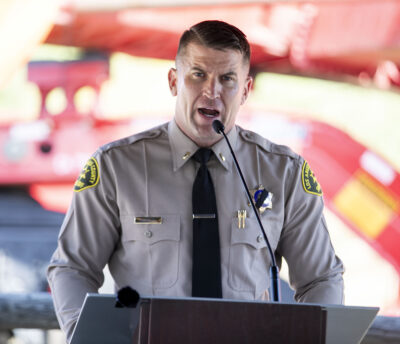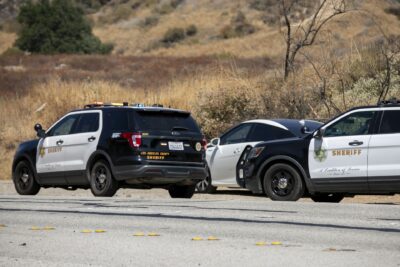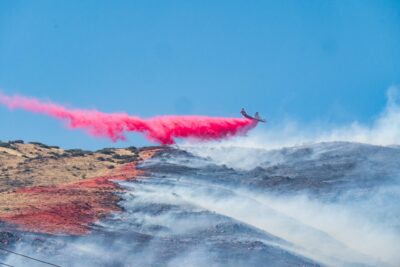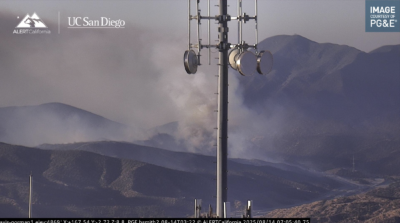By Tom Ozimek
Contributing Writer
Russian President Vladimir Putin on Thursday praised the Trump administration’s “energetic and sincere” efforts to end the war in Ukraine and suggested that a nuclear arms control agreement could emerge from broader peace talks.
Putin made the remarks during a Thursday meeting with senior Russian officials to brief them on negotiations with Washington ahead of his Friday summit with President Donald Trump in Anchorage, Alaska.
“The current American administration is making, in my opinion, quite energetic and sincere efforts to stop the hostilities, stop the crisis, and reach agreements that are of interest to all parties involved in this conflict,” Putin said, according to a Kremlin transcript, translated from Russian.
The aim, he added, was to “create long-term conditions for peace between our countries, as well as in Europe, and in the world as a whole” — potentially including future agreements “in the area of control over strategic offensive weapons,” a reference to nuclear arms.
The United States and Russia remain bound by the New START treaty, which limits deployed intercontinental nuclear weapons but is set to expire in February unless extended or replaced.
Summit Venue and Schedule
The Kremlin said on Thursday that the Alaska summit will begin at 11:30 a.m. local time Friday at the Elmendorf-Richardson joint military base, starting with a face-to-face meeting between Trump and Putin followed by wider talks.
White House press secretary Karoline Leavitt told Fox News on Thursday that Trump plans to participate in a joint news conference with Putin after the meeting, offering additional details of the summit.
“So tomorrow, bright and early, he will be departing the White House for our joint military base in Anchorage, Alaska, where he will engage in a one-on-one meeting with President Putin, which will be followed by a bilateral lunch with the respective delegations from both countries, and then a press conference,” Leavitt said.
Leavitt added that the summit will give Trump an opportunity “to sit down and look the Russian president in the eye and see what progress can be made to move the ball forward to end this brutal war and to restore peace.”
The Alaska summit will be the first face-to-face meeting between Trump and Putin since Trump’s return to the White House in January, following months of renewed U.S.-Russia diplomatic contacts that have so far failed to put an end to the Ukraine war.
Trump warned on Wednesday that if Putin refuses to end the hostilities in Ukraine, there will be “very severe consequences,” adding that he would like to hold a second meeting shortly after the Alaska summit, this time with both Putin and Ukrainian President Volodymyr Zelenskyy.
Diplomatic Activity Leading Up
On the eve of Friday’s planned Alaska summit, Zelenskyy met with British Prime Minister Keir Starmer at 10 Downing Street, the prime minister’s residence. A Downing Street spokesman said the two had a private breakfast and “expressed a strong resolve to achieve a just and lasting peace in Ukraine.” Starmer called the Alaska meeting “hugely important” and said there was now a prospect for a viable solution because of the work that Trump has put in.
Zelenskyy was in Berlin a day earlier as the guest of German Chancellor Friedrich Merz and joined a virtual meeting with Trump and U.S. Vice President JD Vance. At a press conference afterward, he accused Putin of bluffing about Russia’s ability to occupy all of Ukraine and said sanctions were harming the Russian economy.
Moscow has insisted on a comprehensive settlement that includes Ukrainian withdrawal from four partially occupied regions — Donetsk, Luhansk, Kherson and Zaporizhzhia — as well as recognition of Russia’s control over Crimea and guarantees that Ukraine will never join NATO. Ukraine rejects territorial concessions, and NATO leaders have said Russia cannot veto Kyiv’s path to membership.
Trump has suggested that “land-swapping” will be part of any deal, a notion rejected by Kyiv and its European allies. In a joint statement after Wednesday’s virtual talks, Starmer, Merz and French President Emmanuel Macron said negotiations require at least a cease-fire, warned that sanctions should be strengthened if Russia refuses, and reaffirmed that “international borders must not be changed by force.”
In remarks to reporters on Wednesday, Trump described the Alaska summit as “setting the table” for a follow-up meeting that would ultimately lead to a cease-fire between the warring sides.
Chris Summers contributed to this report.









